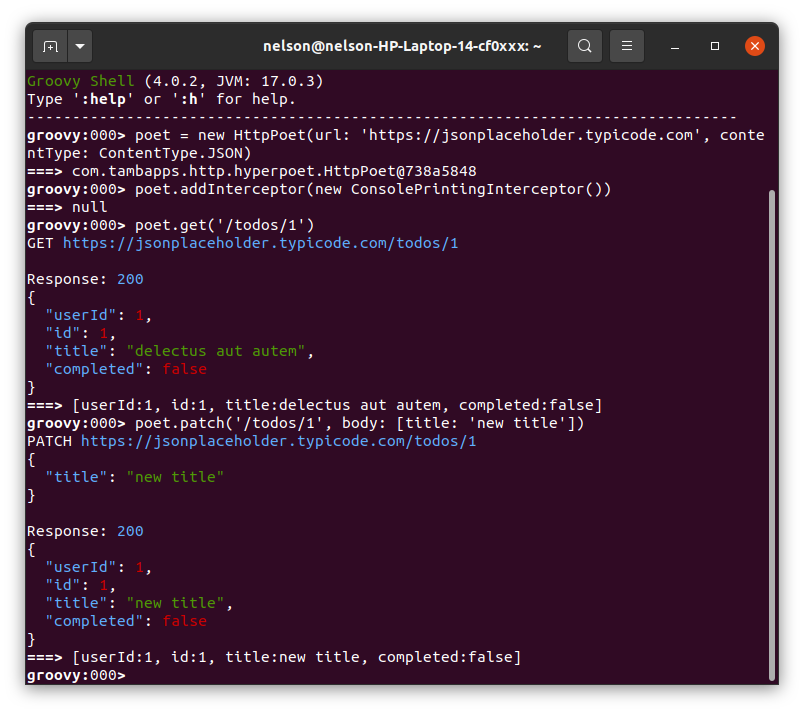Hyperpoet
Hyperpoet is a Marcel and Groovy-friendly HTTP client written in Java 8 backed by OkHttp.
The main goal of this library is to be able to perform HTTP requests with as less code as possible. It is
For that, several functionalities were implemented
Automatic I/O handling : No need to open and close Input/OutputStream, the poet does it for you
Automatic response body parsing : The poet automatically parse the response’s data given its
Content-Typeheader. You can also explicitly specify it yourself.Automatic request body composing : The client/poet automatically compose the request’s body (if any) given a provided content type.
You can also find features such as
- customize error handling
- handle authentication
- get history of requests/responses
- perform requests using Domain Specific Language
- printing request/responses (on a Linux terminal, useful with groovysh)
Check out the full doc here
How to use
The library is in Maven central.
You can import it to your project with Maven
<dependency>
<groupId>com.tambapps.http</groupId>
<artifactId>hyperpoet-groovy</artifactId>
<version>1.4.0</version>
</dependency>
Or Gradle
implementation 'com.tambapps.http:hyperpoet-groovy:1.4.0'
Or see this link for other dependency management tools.
Examples
Get an url
import com.tambapps.http.hyperpoet.HttpHaiku
HttpPoet poet = new HttpPoet(url: API_URL)
def posts = poet.get("/posts", params: [author: 'someone@gmail.com'])
processPosts(posts)
// or if you don't want to instantiate a Poet
def todos = HttpHaiku.get("$API_URL/todos", [author: 'someone@gmail.com'])
Post data
HttpPoet poet = new HttpPoet(url: API_URL, contentType: ContentType.JSON)
newPost = [title: 'a new post', author: 'me@gmail.com', body: 'This is new!']
try {
poet.post("/posts", body: newPost)
} catch (ErrorResponseException e) {
println "Couldn't create new post!"
}
// or if you don't want to instantiate a Poet
HttpHaiku.post("$API_URL/todos", contentType: ContentType.JSON, body: newPost)
Printing request/response data
